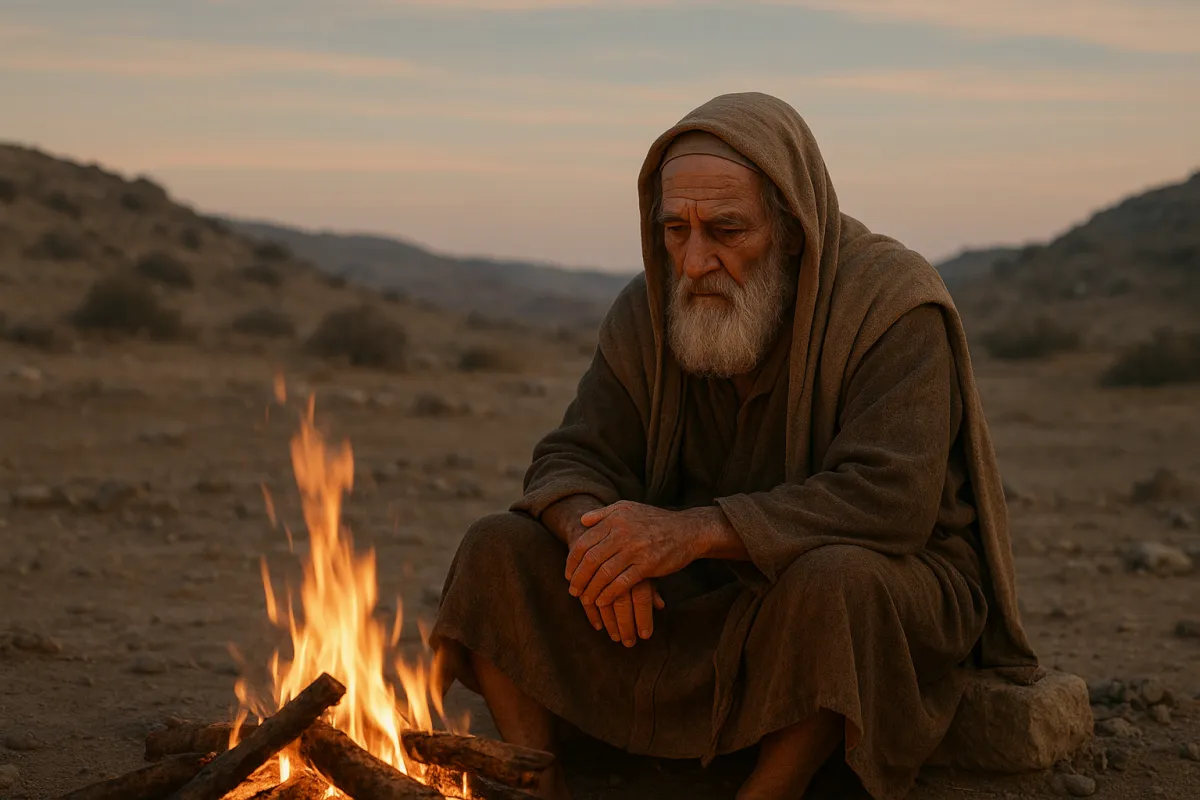
TRUSTING GOD THROUGH TRIALS
Trusting God Through Trials
“Though He slay me, I will hope in Him.
Nevertheless, I will argue my ways before Him.”
— Job 13:15 (NASB 2025)
Trusting God in trials is one of the clearest ways to love Him. It’s not blind faith, it’s fierce faith. It’s choosing to believe He is good when life isn’t. It’s not pretending everything is okay, it’s holding onto God even when everything is falling apart.
Job's life was a tapestry woven with threads of immense suffering and steadfast faith. He lost his wealth, his children, and his health, yet he refused to curse God. Instead, he lamented his pain and questioned his circumstances, but he never abandoned his faith.
In Job 13:15, he declares, "Though He slay me, yet will I trust Him." This statement reflects a profound trust in God's sovereignty, even when God's actions are incomprehensible. Job's faith wasn't based on his circumstances but on his relationship with God.
Job's story teaches us that it's okay to question and grieve during times of suffering. What matters is that we bring our doubts and fears to God, maintaining our relationship with Him. Faith doesn't mean having all the answers; it means trusting God even when we don't understand.
In the end, God restored Job's fortunes and blessed him even more than before. But more importantly, Job's understanding of God deepened. He moved from knowing about God to experiencing Him personally.
When we face trials, let's remember Job's example. Let's hold on to our faith, trust in God's goodness, and seek a deeper relationship with Him through our struggles.
Faith In Action
Joni Eareckson Tada was just 17 when a diving accident changed everything. One moment of impact left her paralyzed from the shoulders down. What followed wasn't a storybook recovery but a crucible of suffering—marked by despair, depression, and cries for answers that didn’t come quickly. She faced the raw edge of life’s brokenness with no escape hatch, no shortcut to healing, and no guarantee of relief. But over time, her story became less about what she had lost and more about the One she had found, Jesus Christ, her rock in the storm.
Joni didn’t build her theology in a classroom, she built it from a hospital bed, through sleepless nights and silent tears. Her faith wasn’t dressed in flowery language or empty clichés. It was forged in pain, pressed deep into her soul through years of suffering. “The weaker I am,” she said, “the harder I must lean on Jesus. And the harder I lean, the stronger I discover Him to be.” This is a revelation into the character of God. A conclusion to be drawn when all other answers had been found lacking.
She has spent decades testifying not to a pain-free life but to a powerful Savior. Her wheelchair didn’t disqualify her from ministry, it became her pulpit. And her suffering didn’t diminish God’s goodness, it magnified it. Through her life, we see that deep faith isn’t proven in comfort but in crisis. She reminds us that affliction is not the absence of God’s presence—it is often the place where His presence becomes most real.
Joni’s trust wasn’t theoretical—it was blood-bought, tear-soaked, and battle-tested. And because of that, her life continues to be a loud, unwavering testimony: that Christ is enough—even when nothing else is.
The Bottom Line
Loving God in the fire proves your faith is real. Trust is the song you sing when worship feels like a whisper and answers are slow in coming. That’s the kind of faith Joni Eareckson Tada has lived for decades. Her faith wasn't grown in the spotlight, but was hammered out in the shadows of suffering. Paralyzed at 17, she wrestled with loss, loneliness, and deep despair. But like Job, she never turned her back on God, she leaned in harder.
Both Job and Joni asked hard questions. Both felt the heartache of life that had betrayed them. And both discovered that when everything else falls apart, God is still enough. Job said, “Though He slay me, yet will I trust Him.” Joni echoed that spirit when she said, “The weaker I am, the harder I must lean on Jesus. And the harder I lean, the stronger I discover Him to be.” These are the words of people who have lived in the fire, and found God there. These are not people who play church just on Sunday mornings.
Theirs is a faith not built on comfort, but on conviction. They show us that trusting God doesn’t mean you never cry, it means you never quit. Their lives challenge us to press in, not pull back, when the pain won’t relent and the answers don’t come. Sometimes, worship isn’t a shout, it’s a whisper through tears. And in those moments, when faith feels costly and obedience feels uphill, you discover what Job and Joni already know: God is still worthy.
To Summarize The Last Few Posts
Loving God is not a feeling, it’s a full-life response that engages your heart, soul, mind, and strength. It shows up in trust when life is uncertain, in worship when life is painful, in obedience when it's costly, and in devotion when the world offers easier options. From Elisabeth Elliot’s courageous return to the tribe that killed her husband, to Joni Eareckson Tada’s steadfast worship through suffering, each example shows that true love for God requires surrender. Whether through thought, action, or endurance, loving God is lived out in the daily decisions to give Him everything.
Something To Think About
Who is God to you? Take a moment and write down your image of God. Your life's decisions come from how you see God.
Identify any area where you need to change how you see God. Find Scripture to help you see God for who He is and not what you perceive Him to be.
